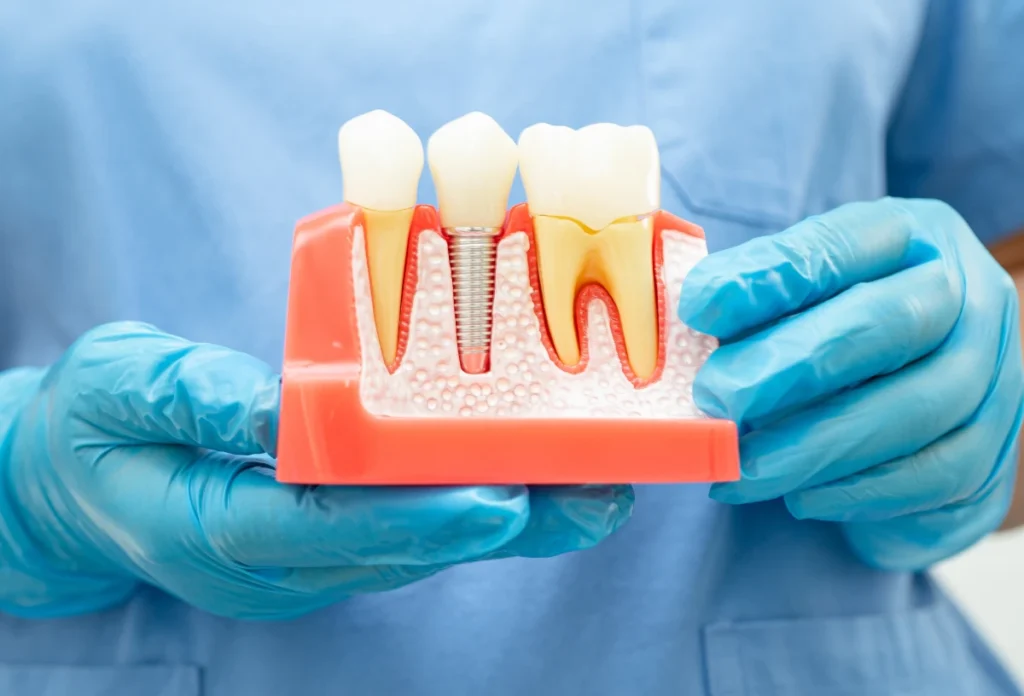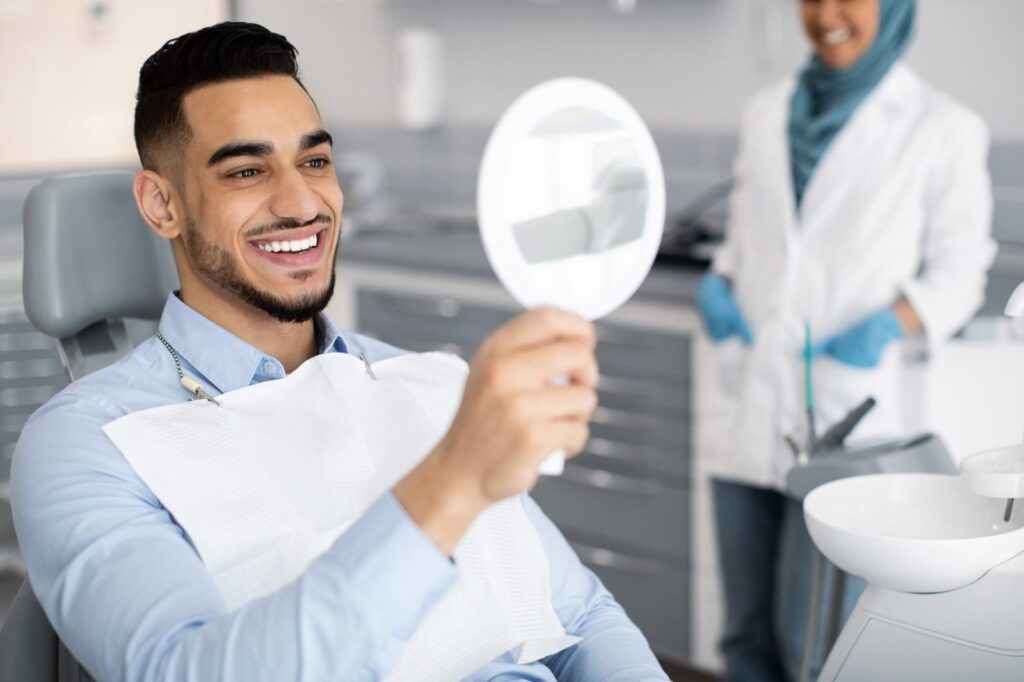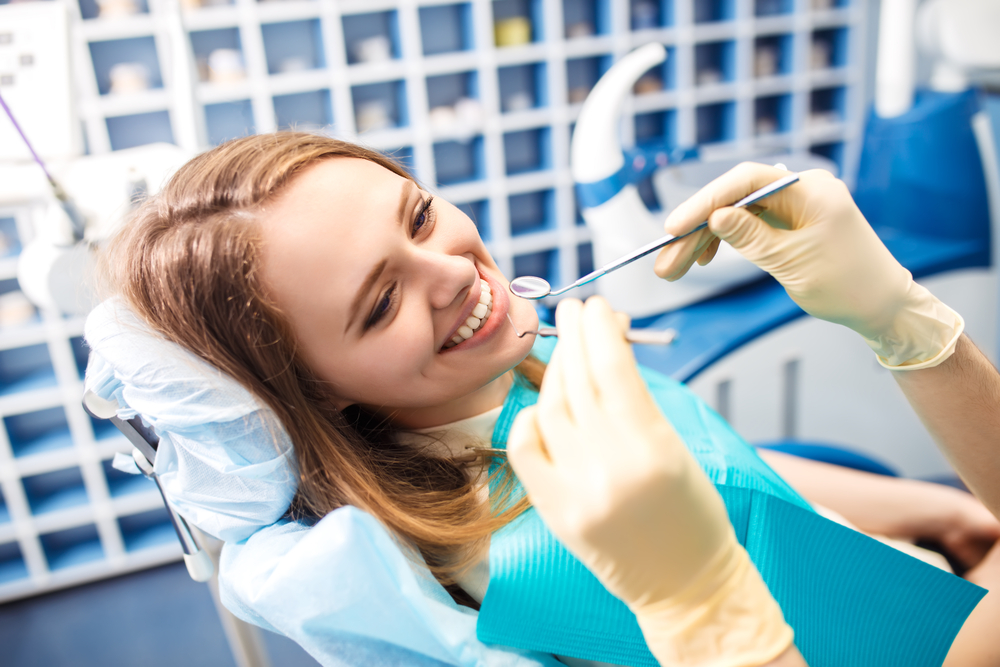Once you’ve invested money and often years of your life into braces, your orthodontist may recommend you wear a retainer to keep your teeth from shifting.
However, dental retainers come with responsibility. If you don’t keep your retainer clean, you could be putting more than plastic or metal into your mouth every day. Studies show that more than 50% of dental retainers can contain several harmful microbes not normally found in the mouth.
What Germs Are on My Retainer?
A research team from the Eastman Dental Institute at University College London recently found that insufficient cleaning of dental retainers caused excessive germ buildup, which could easily transfer the microbes to the oral cavity. They took samples from the mouths of people who don’t wear retainers and also from those who wear the most popular types of dental retainers.
Everyone’s mouth contains hundreds of different bacteria, many of which are actually beneficial, but researchers were looking for two germs in particular that are not normally found in the mouth:
- Staphylococcus (Staph infection)
- Candida (a type of yeast/fungus)
They found these microbes in more than 50% of retainer wearers—not only on the retainers themselves, but also on the wearers’ tongues and inner cheeks.
Retainers, like your teeth, can also have plaque and tartar buildup if not cleaned thoroughly and regularly.
Can My Retainer Make Me Sick?
While commonly not harmful in healthy individuals, these germs pose a particular threat for those with weakened immune systems. These bacteria typically live in small colonies covered with a thin layer of slime, called biofilm, and once established, they can be very difficult to remove.
Is it Bad to Not Clean My Retainer?
If you don’t clean your retainer on a daily basis, it can develop germs and bacteria that could threaten your oral health and overall physical health—whether you have a strong immune system or not.
“This bacteria can also damage the retainer by weakening the acrylic and causing it to be more prone to breakage,” according to Dr. Parley Hubler, Jr., at Lucas Family Dentistry.
How to Keep Dental Retainers Clean:
- Drink water during the day
- Rinse your mouth after eating or drinking anything sugary
- Wash your hands before and after handling your retainer
- Use a separate soft-bristled toothbrush and toothpaste to brush your retainer
- Wash the retainer case in the top rack of dishwasher
- Soak retainer weekly using a recommended solution
- Store retainer in a dry place
- Brush your teeth at least twice a day
While the thought of additional germs and bacteria in your mouth may make you feel uneasy, there are ways to prevent these germs from developing and keep your dental retainer clean.
Transmission of these microbes can occur when your retainer is frequently moved to and from the mouth and its storage place, which is often plastic and rarely washed. Researchers say that proper hygiene is currently the most effective way to prevent transmission to these microbes.
Patients should also be warned of the consequences of not adequately cleaning their retainers, as many children (and sometimes adults) fail to brush or disinfect their retainers before and after each use.
Here’s how and why you should keep your dental retainer clean and prevent additional plaque and tartar buildup:
- Drink water during the day to remove any unwanted bacteria from your mouth and retainer.
- Rinse your mouth after eating or drinking anything sugary. This will help prevent additional plaque buildup and keep your teeth protected against cavities.
- Wash your hands before and after handling your retainer.
- Use a separate soft-bristled toothbrush and toothpaste to brush your retainer before and after wearing it.
- Wash the retainer case in the top rack of your dishwasher every few weeks. Do not put your retainer in the dishwasher!
- Soak your retainer weekly to make sure it stays clean. You can use a number of products for this weekly soak:
- Mouthwash
- Denture Cleanser like Efferdent or Polident. Just know that it may eventually turn your retainer yellow.
- Baking Soda and Water. Use equal parts baking soda and water.
- Vinegar and Water. Mix half white vinegar and half warm water and let your retainer soak in it for 20 minutes. Following this soak, scrub your retainer clean and rinse with cold water. Repeat soak for another 20 minutes.
- Store your retainer in a dry place. Never clean your retainer and close it in a case as this environment can breed unwanted bacteria.
- Brush your teeth at least twice a day, and use mouthwash once a day.
It takes just a couple of extra minutes to clean your retainer each day after brushing your teeth but doing so can help protect both your retainer and your mouth from mold, unwanted bacteria, plaque and tartar buildup.
How Can I Tell if I’m Not Cleaning My Retainer Correctly?
There are a few signs to look for to determine if you aren’t cleaning your retainer thoroughly:
- You start getting cavities
- Your teeth become more sensitive
- Other oral health problems develop
- The retainer starts developing white spots
- The retainer starts to break or crack
If you are following the steps above and still have concerns about the condition of your retainer, ask your dentist or orthodontist to check the retainer for you at your next visit.
Is My Retainer Good for My Teeth?
Many people who have gone through the braces process aren’t excited about having to wear a retainer after they finally get their braces off and can show off their new teeth. Isn’t a retainer just another device to hide your pearly whites?
The reality is that not wearing your retainer based on your dentist’s instructions could undo all the work and money that went into straightening your teeth.
Other FAQs About Retainers
Below is a number of other concerns voiced by individuals who are told they need to wear a retainer but don’t really want to.
Can My Retainer Realign My Teeth?
If you’re being told to wear a retainer after getting your braces off, you may be wondering if you could have just worn this to begin with. Can a retainer realign your teeth just as well as braces?
The answer to that is no. Invisalign is often confused for a retainer and does have the capability of straightening teeth, but it’s a different dental device than a retainer and should be treated as such.
Retainers ensure your teeth remain straight and in place once braces have been removed. They can be used to move one tooth into a straighter position or close a space between teeth, but realigning teeth to the extent orthodontia can is not possible with retainers.
“Retainers don’t allow for precise control and predictable tooth movements, thus they are often an incomplete solution.”
Do I Have to Wear a Retainer Forever?
If your orthodontist recommends you wear a retainer after braces, it may seem like your teeth will be covered and constrained forever, but that’s usually not the case.
Your dentist will recommend how long you have to wear your retainer based on the extent of work that was required and the likelihood of your teeth trying to realign to their original position. Recommendations vary. You may be instructed to wear your retainer day and night for the next 3 months, or only at night for the next year. Talk to your dentist or orthodontist about his/her recommendations and be sure to follow them accordingly. Not doing so could mean needing more work and money to correct your smile.
The time immediately following the removal of braces is critical. If your dentist or orthodontist suggests you wear a retainer during this time to keep your teeth in place, be sure to follow those instructions!
“Retainers help stabilize your teeth while new bone tissue builds around them, solidifying their new positions, allowing you to keep your teeth straight and protect your orthodontic investment.”
– Colgate
Why Does My Retainer Hurt?
As you begin wearing your retainer, you may experience some soreness and discomfort. This is completely normal for the first few days as your teeth get used to this dental device.
Similarly, if you wear your retainer at night, remove it during the day and put it back in, it may feel slightly uncomfortable as your teeth readjust to it.
If, however, you wear your retainer regularly and it is still causing significant pain and discomfort, talk to your dentist or orthodontist so they can make any needed adjustments.
How Much Do Dental Retainers Cost?
A dental retainer costs anywhere from $100 to $1,000 out-of-pocket, and prices vary based on the brand and type of retainer you get.
Sometimes dental retainers will be included in the cost of getting braces, or shown as an additional fee.
If your dental insurance plan doesn’t cover or help you with the cost (and many don’t cover cosmetic work like this), you might consider getting a dental savings plan instead, which can offer you significant discounts on dentist and orthodontist visits, braces and dental retainers.
Learn More About Dental Savings Plans for Braces & Retainers
Article reviewed by Dr. Parley Hubler, Jr., at Lucas Family Dentistry.






